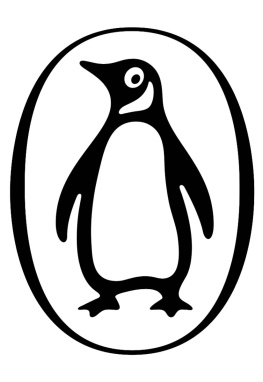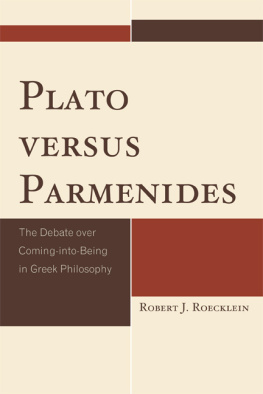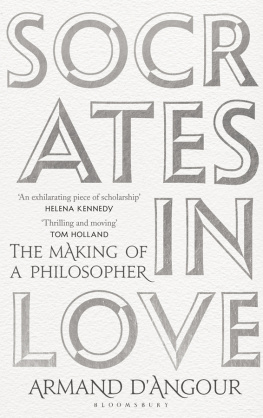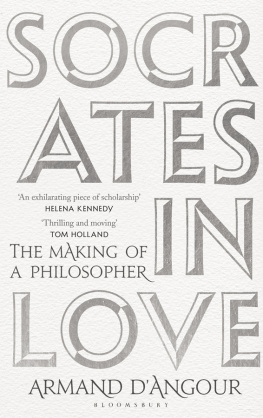
THEAETETUS
P LATO (c. 427347 B.C .) stands with Socrates and Aristotle as one of the shapers of the whole intellectual tradition of the West. He came from a family that had long played a prominent part in Athenian politics, and it would have been natural for him to follow the same course. He declined to do so, however, disgusted by the violence and corruption of Athenian political life, and sickened especially by the execution in 399 of his friend and teacher, Socrates. Inspired by Socrates inquiries into the nature of ethical standards, Plato sought a cure for the ills of society not in politics but in philosophy, and arrived at his fundamental and lasting conviction that those ills would never cease until philosophers became rulers or rulers philosophers. At an uncertain date in the early fourth century B.C . he founded in Athens the Academy, the first permanent institution devoted to philosophical research and teaching, and the prototype of all western universities. He travelled extensively, notably to Sicily as political adviser to Dionysius II, ruler of Syracuse.
Plato wrote over twenty philosophical dialogues, and there are also extant under his name thirteen letters, whose genuineness is keenly disputed. His literary activity extended over perhaps half a century: few other writers have exploited so effectively the grace and precision, the flexibility and power, of Greek prose.
R OBIN W ATERFIELD was born in 1952. He has been a university lecturer, and both copy editor and commissioning editor for Penguin. He is now a self-employed writer and consultant editor. His publications range from academic articles to childrens fiction. He has translated various Greek philosophical texts, including several for Penguin Classics: Xenophons Conversations of Socrates, Plutarchs Essays, Platos Philebus and (in Platos Early SocraticDialogues) Hippias Major, Hippias Minor and Euthydemus. His biography of Kahlil Gibran, Prophet: The Life and Times of Kahlil Gibran is published by Penguin Arkana. He has also edited The Voice of Kahlil Gibran for Penguin Arkana.
PLATO
Theaetetus
Translated with an Essay by
ROBIN A . H . WATERFIELD
PENGUIN BOOKS

FOR BRIJI
 v
v
PENGUIN BOOKS
Published by the Penguin Group
Penguin Books Ltd, 80 Strand, London WC2R 0RL , England
Penguin Group (USA) Inc., 375 Hudson Street, New York, New York 10014, USA
Penguin Books Australia Ltd, 250 Camberwell Road, Camberwell, Victoria 3124, Australia
Penguin Books Canada Ltd, 10 Alcorn Avenue, Toronto, Ontario, Canada, M4V 3B2
Penguin Books India (P) Ltd, 11 Community Centre, Panchsheel Park, New Delhi 110 017, India
Penguin Group (NZ), cnr Airborne and Rosedale Roads, Albany, Auckland 1310, New Zealand
Penguin Books (South Africa) (Pty) Ltd, 24 Sturdee Avenue, Rosebank 2196, South Africa
Penguin Books Ltd, Registered Offices: 80 Strand, London WC2R 0RL , England
www.penguin.com
This translation first published 1987
Reprinted with new Appendix 2004
This translation, essay and notes copyright Robin A. H. Waterfield, 1987, 2004
All rights reserved
Except in the United States of America, this book is sold subject to the condition that it shall not, by way of trade or otherwise, be lent, re-sold, hired out, or otherwise circulated without the publishers prior consent in any form of binding or cover other than that in which it is published and without a similar condition including this condition being imposed on the subsequent purchaser
ISBN: 978-0-14-196190-3
P REFACE

Theaetetus is often hailed as Platos most sustained study of epistemology or the like and this is true, but it is also misleading. It is misleading because it makes it sound as though epistemology was an established subject, which Plato was addressing. It wasnt. His philosophical predecessors had occasionally made remarks which we would classify as concerned with the problem of knowledge, and so had Plato himself, more systematically, in earlier dialogues; but it is closer to the truth to say that Theaetetus establishes the study of knowledge as a branch of philosophy in its own right, distinct from, especially, ontology. Consider, then, how remarkable it is that two and a half thousand years later it is still worth reading and discussing, for its philosophical interest as well as for its literary merits. Indeed, it is one of the few Platonic dialogues which consistently appears in modern works and courses on philosophy.
This alone is enough to justify the inclusion of an essay on the dialogue in a volume whose first aim is to translate it. To make such an inclusion is not to suggest that the dialogue cannot be appreciated by a lay reader, but to acknowledge its importance and the fact that, as the virtual inventor of the subject, Platos discussion lacks technical vocabulary and precise distinctions, and therefore occasionally requires elucidation. In fact, Theaetetus is a philosophical work par excellence accessible to the layman, yet leading one ever deeper into philosophical areas.
An anecdote may indicate a further reason for the necessity of exploration of this (and of any) Platonic dialogue. I well remember how, on first reading Theaetetus as an undergraduate, I was entranced by the clarity of the writing and the confidence of the arguments into believing almost everything Plato said. This is a trap which I am sure Plato himself would have wanted us to avoid: he wrote philosophy to stimulate thought rather than acceptance.
So much for justifying the inclusion of the essay on the dialogue. It will be noticed that I have broken with common practice and put this essay after the translation, rather than as an introduction: this is to indicate that the text needs reading first. The essay, it should finally be noted, falls far short of a thorough scholarly commentary on the dialogue, but is intended to alert the reader to the major issues which should be confronted if reading the dialogue develops into study of it.
As for the translation, my policy has been to try to reproduce the Greek both fluently and literally. Where these two aims clashed, I have preferred fluency to literalness, except where to do so would gloss over some important ambiguity. I chose not to break up the rhythm of the dialogue with the type of running commentary which is popular among translators of Plato; but I have added footnotes on minor points of explication or interest.
The Greek text used is that of J. Burnet (Platonis Opera, Volume 1, Oxford, 1900). Any divergences from this text have been mentioned in footnotes. The numbers and letters which appear in the margins are the standard means of precise reference to Plato; they refer to the pages and sections of pages of the edition of Plato by Henri Estienne, or Stephanus (Geneva, 1578).
Platos Theaetetus has been very intensively studied, particularly by recent scholars. The bibliography may be taken to express my acknowledgements to written work. I also have two further academic acknowledgements to make: I attended a series of lectures on the dialogue by Myles Burnyeat in Cambridge in late 1976, and at much the same time was participating in the late Gwil Owens seminars on the dialogue.
Next page









 v
v
